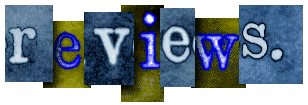

Most bad novels are alike, at least in one way: they fail, whether because of melodrama, distracting mannerism, an overfashionable style, or some other lapse, to maintain the artifice of a real world excerpted. Stephen McCauley's third novel, The Man of the House, doesn't have that problem. Like his winning debut, The Object of My Affection, it provides a sharp, convincing rendering of the mishaps and uncertainties of contemporary not-quite-youth. The Man of the House is the other kind of bad novel: the kind that's bad precisely because it's far more real than anyone could want.
Here's Clyde, our narrator, about to deploy a reminiscence:
Coming out was, for me, the round of insults, anger, tears, recriminations, apologies, and regret that's pretty much standard fare for that particular rite of passage, assuming things don't go badly. Most of it doesn't bear repeating, which is a good thing, since I've buried most of it in an extraordinarily shallow grave. It might well be true that the unexamined life isn't worth living, but let's face it, cable TV makes it a lot easier to put up with.
What stands out most clearly in my mind is what happened a month after I made my big announcement.
Nothing about Clyde's speech is even remotely implausible. McCauley's prose, with its taste for cliché ("shallow grave," "rite of passage"), uncalled-for elevation ("recriminations," "extraordinarily"), pure slack ("for me," "pretty much", "particular"), redundancy ("Most of it . . . most of it"), and painful attempts at conversation ("let's face it," "things") is a perfect replica of the undistinguished diction of the everyday (that is, unnovelized) world -- so perfect that I began to feel, after a while, as if good writing were something I'd only imagined, that what I was reading was all that there was, that I'd lift my head to find the world outside as charmless as this book.
Clyde, in a way, has the same problem. Thirty-five years old, a grad-school drop-out several times over, still pining for a boyfriend who left two years ago, he's naturally skeptical about transcendence. We're squarely in the genre of Kingsley Amis's Lucky Jim, and, more recently, Michael Chabon's Wonder Boys. These are novels that capture men at the bewildered moment between the expiration of youthful enthusiasm and the onset of middle age, men whose energies are divided evenly between clutches at romance -- usually with younger or at least less weathered partners -- and mordant observation of the vanity all around them. (The genre's motivating idea is that both are manifestations of the same impulse.) In Lucky Jim, artists and academics get the acid treatment; in Wonder Boys, novelists and academics; in The Man of the House, yuppies, guppies, people who live in New Hampshire, and academics.
The difference is that the first two books are very, very funny -- so much so that we excuse and even take heart in the narrators' failures of courage and grace. By contrast, Clyde's just glum and a bore. What's worse, like all bores, he tries too hard to please. His satiric set pieces seem more like performances than reportage, perhaps because his delivery is so often reminiscent of a hack stand-up comic. (Of a suburban housing development called WestWoods: "I found the name of the place a constant irritant. Where were the woods?") And the satire, even when the specter of Seinfeld recedes, is blunt stuff. Clyde, like a bright high-school senior, turns his scorn on anything that smells of conformity: his pumped-up ex, a yuppie couple who buy records because they're popular, the residents of WestWoods in their "identical Lycra bathing suits . . . all reading the same paperback novel and ignoring one another."
Local readers will wonder, then rankle at McCauley's description of the novel's Cambridge setting as "slowly but surely turning . . . into Harvard World, a beautifully tended theme park designed around an academic motif . . . It was only a matter of time before they installed a monorail and a water slide." The Brattle Theatre, of which Clyde approves, is supplied here with a crowd of wacky film zealots who shout at the screen and eat four-course meals in their seats. Poor Harvard Square hasn't been so ill-used in fiction since Margaret Atwood staged public hangings there in The Handmaid's Tale.
It's hard to imagine even Clyde can believe the world to be so simple. The reason he's at WestWoods in the first place, for instance, is that his neurasthenic and certifiably nonconformist sister Agnes lives there. One longs for Clyde to consider, just for a moment, the idea that the other Lycra-clad poolsitters might have secrets of their own. It's in vain, of course. But at least we have Agnes, whose scenes recall The Object of My Affection's cockeyed charm. When she ends a chapter by lamenting, "I just wish I had a nice beefsteak tomato to have for lunch tomorrow," we are reminded that McCauley, suppress it as he might, possesses the comic novelist's only indispensable: the ability to surprise.
I've hardly touched the plot. There is one, involving Clyde's long-standing battle with his father, a shy puppy's domestication, and the difficult courtship of Agnes, but it never has a hope of competing for the foreground; we're too busy fuming at the messenger. At the end, Clyde claims to have arrived at some resolution. But he's seemed so pleased with himself all along that it's hard to believe he's really changed. It's the image of the hack comic that stays with us: telling the same jokes forever, always expecting a laugh, terrible, and terribly real.
